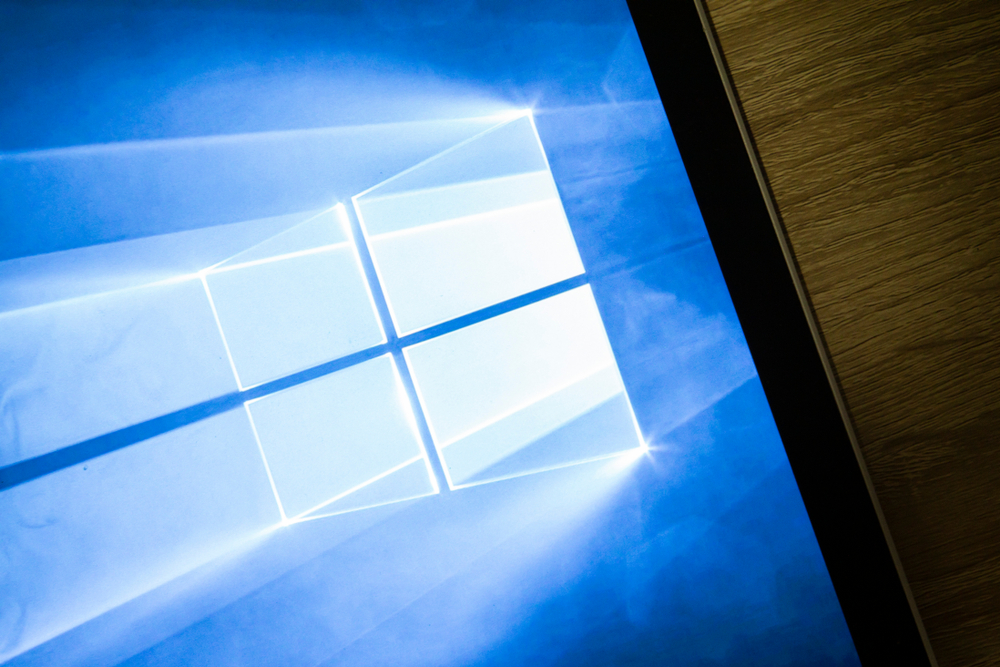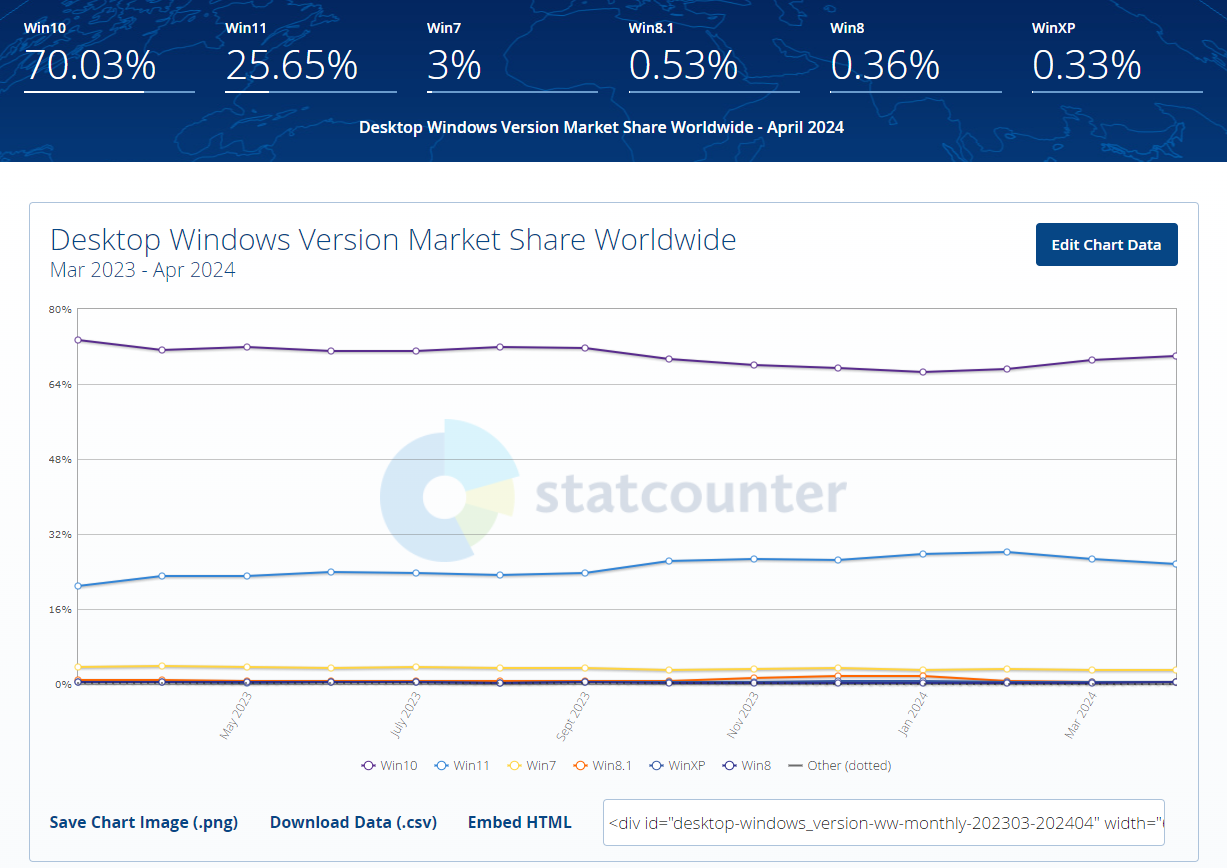
Statcounter released a new report showing a noticeable decrease in Windows 11's worldwide market share since Feb 2024. The struggling Windows 11 fell below 26% while Windows 10 enjoyed 70.03% of Microsoft's OS market share.
This latest report reveals a drop of 0.97 points which translates from 26.68% to 25.65% while showing a corresponding increase in Windows 10. It's clear that many users don't see the appeal of shifting to Windows 11, despite many efforts by Microsoft to force migration and a series of updates and new features as it doesn't enhance their experience or improve their quality of life. Despite being released on October 5, 2021, many users (and one has to imagine, businesses) are content with Windows 10. In comparison, Windows 10 is a nine-year-old operating system whose last version is the only one supported until October 14, 2025. It also shows nothing significant has changed since the last time we reported about these stats last year.
Although these stats may look contrary to Steam's survey about OS market share, Statcounter would show an overall market share among general users and businesses of all sizes. Surveys of such a large scale may not be accurate to the tip, however, it does reflect close enough statistics to make a safe conclusion of the overall market share. The gradual growth of Windows 10 users while Windows 11 decreases during April 2024 reflects users' opinions about these operating systems.

Windows 11 Unlikely to Boost OS Market Share
Microsoft will need to accept that it is unlikely to see increased market share due to enhancements from Windows 11 24H2 once released as most users wouldn't need AI (or detest it). Above all, existing Windows 11 users and its former developers complained about the basic functions of Windows 11, raising doubts about Microsoft's inability to listen to user's issues about it. Microsoft also seems to be testing its existing user's patience about the possibility of blocking UI-altering apps and other applications.
What's also interesting is that the long-obsolete Windows 7 can be seen enjoying a certain market share over Windows 8.0 and 8.1. Many users didn't see any reason to shift towards Windows 8.0 for multiple reasons, prompting Microsoft to bring back certain ommissions in Windows 8.1, which was still not enough to get people to migrate. In comparison, many users shifted from Windows XP to Windows 7 gradually- and the same for those who shifted to Windows 10.
There is a certain observable fact here that Microsoft can benefit if it can provide reasons for a gradual migration to Windows 11. But if Microsoft chooses to count on forceful tactics, it would likely leave a bad taste among consumers. If people don't wish to 'upgrade' despite being on a platform that's in its last year to receive updates, it's up to Microsoft to convince them otherwise.







